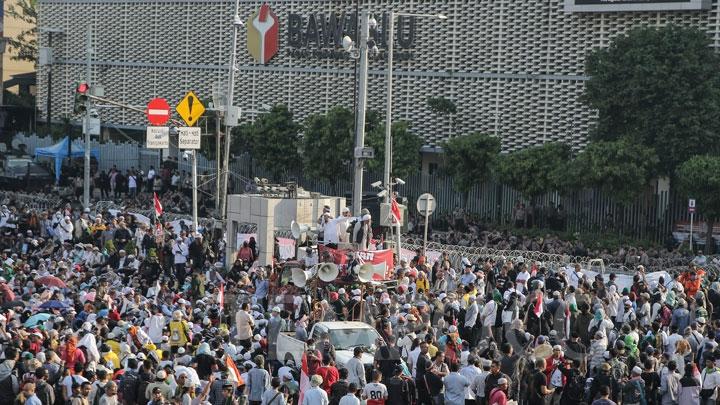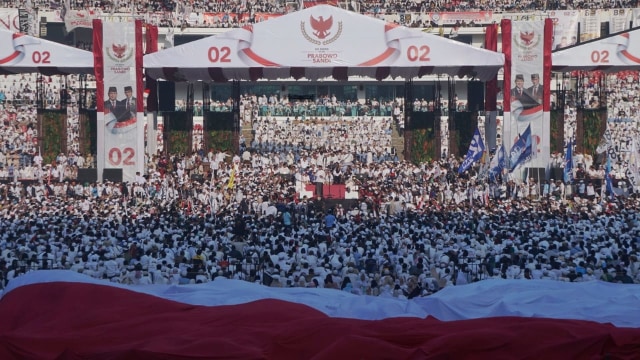People Power: Can Indonesia Grassroots Movements Still Make Change? My Honest Take
JAKARTA, turkeconom.com – People Power refers to the collective strength and influence of ordinary citizens in effecting social and political change. In Indonesia, grassroots movements have played a significant role in shaping the nation’s history, from the fight for independence to contemporary struggles for democracy and social justice. In this article, I will provide my honest take on whether grassroots movements in Indonesia can still make a meaningful impact in today’s political landscape.
The Legacy of People Power in Indonesia

Historical Context
Indonesia has a rich history of grassroots activism, exemplified by various movements that have challenged oppressive regimes and advocated for democratic reforms. The fall of President Suharto in 1998, largely driven by public protests and demands for reform, is a prime example of how collective action can lead to significant political change. This legacy of activism has inspired subsequent generations to engage in social movements.
Key Movements
Several notable grassroots movements have emerged in Indonesia over the years:
- Reformasi Movement (Reform Movement): This movement in the late 1990s sought to end Suharto’s authoritarian rule and promote democratic governance. It united various sectors of society, including students, labor groups, and civil society organizations.
- Environmental Movements: Activism focused on environmental protection has gained momentum, addressing issues such as deforestation, pollution, and climate change. Groups like Walhi (Indonesian Forum for the Environment) have mobilized citizens to advocate for sustainable practices.
- Labor Movements: Workers’ rights organizations have fought for better working conditions and fair wages, gaining traction in industries such as manufacturing and agriculture.
The Current Landscape of Grassroots Movements
Opportunities for Change
Despite the challenges, grassroots movements in Indonesia still have the potential to effect change. Several factors contribute to this possibility:
- Digital Activism: The rise of social media and digital platforms has transformed how grassroots movements organize and mobilize. Activists can reach a wider audience, share information rapidly, and coordinate actions more effectively.
- Youth Engagement: Indonesia has a vibrant youth population that is increasingly politically aware and active. Young people are using their voices to advocate for social justice, environmental issues, and human rights, bringing fresh energy to grassroots movements.
- Collaborative Networks: Many grassroots organizations are forming alliances with NGOs, international bodies, and other civil society groups, enhancing their capacity to influence policy and raise awareness.
Challenges Faced
However, grassroots movements in Indonesia also face significant challenges:
- Political Repression: The government has been known to suppress dissent and limit freedom of expression. Activists may face intimidation, harassment, or even legal repercussions for their actions, which can stifle grassroots efforts.
- Fragmentation: The diversity of issues and causes can lead to fragmentation within the movement, making it difficult to present a unified front. Different groups may prioritize varying agendas, which can dilute their collective impact.
- Socioeconomic Barriers: Many citizens face economic hardships that can limit their ability to participate in activism. Issues such as poverty, unemployment, and lack of access to education can hinder grassroots mobilization.
My Honest Take on the Future of People Power in Indonesia
Potential for Impact
In my view, while grassroots movements in Indonesia face significant obstacles, they still possess the potential to drive meaningful change. The legacy of past movements serves as a reminder that collective action can lead to progress, and the current landscape offers new tools and opportunities for mobilization.
The Importance of Solidarity
For grassroots movements to succeed, solidarity among various groups is essential. By finding common ground and collaborating on shared goals, activists can amplify their voices and strengthen their impact. Building coalitions that include diverse perspectives will be crucial in addressing the multifaceted challenges facing Indonesian society.
Embracing Digital Tools
Leveraging digital platforms for organizing, fundraising, and raising awareness can enhance the effectiveness of grassroots movements. By embracing technology, activists can reach broader audiences, engage younger generations, and foster a culture of participation and activism.
Conclusion
People Power in Indonesia remains a vital force for change, despite the challenges that grassroots movements face. The potential for impact lies in the collective strength of citizens who are willing to stand up for their rights and advocate for a better future. By fostering solidarity, embracing digital tools, and staying committed to their causes, grassroots movements can continue to make a difference in Indonesia’s evolving political landscape.
As we reflect on the power of collective action, it is essential to recognize that every voice matters. The journey toward social change is ongoing, and the spirit of People Power will continue to inspire.
Sharpen Your Skills: Delve into Our Expertise on Politic
Check Out Our Latest Piece on Judicial Independence!











